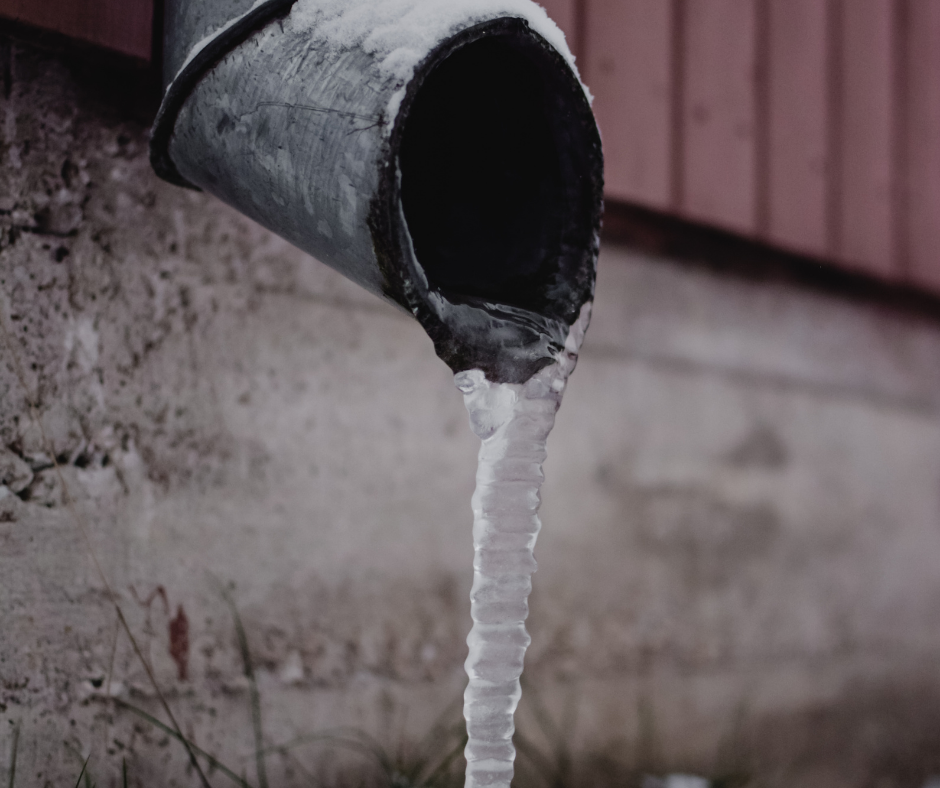FREEZING TEMPERATURES AND FROZEN PIPES; A MID-WINTER CHECKLIST
February 11, 2022
Find and fix frozen pipes before it turns into an emergency plumbing service call!
It’s mid-February 2022 and waves of severe winter weather have been pummeling much of the U.S. from New England down to the Gulf Coast and across the central states. Sustained freezing temperatures are taking a toll on homes in regions not normally subjected to these conditions.
Plumbing service calls for frozen and burst pipes are way up, with property damage that can range in the tens-of-thousands of dollars. No matter when you might be reading this article, this snapshot of time in the winter of 2022 is a cautionary tale for all homeowners to make mid-season inspections of your plumbing a yearly habit in order to avoid issues when there could still be icy weeks ahead.
An important mid-winter checklist is below, but first, let’s cover what to look for, what to do, and then how to prevent problems going forward:
First, it’s important to know what areas are more vulnerable to freezing than others:
- Homes in southern climates that are often not properly insulated against freezing temperatures
- Exterior walls not adequately insulated against outside temperatures
- Attics and basements that receive less heat than the rest of the house
FOUR SIGNS YOUR PIPES ARE IN TROUBLE:
1. NO water comes out when you turn on your faucet.
2. Water is turned ON at the home’s intake source but you are not finding any leaks…yet.
3. There is frost on your pipes.
4. A strange smell is coming through your kitchen or bathroom drains (this means there could be an ice blockage and odors are being forced back into the living areas instead of venting outside).
If you’re not finding active leaks, the good news is that your pipes may be frozen, but not yet burst. There is still time to avoid potentially catastrophic water damage in the home. We highly recommend calling your licensed and experienced Ben Franklin Plumbing professionals to inspect and thaw your frozen pipes. DIY attempts, while well-intentioned, can lead to equal or worse property damage than the burst pipe itself.
However, if you are going to attempt to thaw your pipes, we want to offer these tips and guidance.

HOW TO FIX FROZEN PIPES:
1. Open your faucets: Thawing pipes creates water and steam and you’ll need open faucets to let this out. Open faucets also give the thawing ice a way to drain as it melts.
2. Apply heat to frozen sections: There is a few ways you can do this; wrapping an electronic heating pad around the pipe, using a hair dryer, or both. In a pinch, towels heated with hot water can also work, but may take longer and are a bit messier. Do not leave the heating pad unattended for a long time on the pipe as it’s a fire hazard.
3. DO NOT use any sort of actual fire-producing device to thaw pipes such as a blow torch, propane or kerosene heater, butane lighter, etc. AVOID using space heaters unless you can guarantee there are NO flammable materials nearby. Even in this case, you should not leave a space heater unattended for a long time.
4. Monitor the faucets as you apply heat until you see water start to flow. When the stream returns to normal, that’s a strong indication that thawing has been successful. Check all faucets in the home to ensure water flows properly from all of them.
Once again, we strongly recommend that you call the plumbing experts at Ben Franklin. We safely thaw and repair frozen pipes every day and can offer you peace of mind for a fraction of the cost compared to an emergency call-out when pipes burst and fill your home with water.
The best bet is to prevent frozen pipes before they even happen and here’s a great mid-winter checklist to book mark and reference each season.
HOW TO PREVENT FROZEN PIPES; YOUR MID-WINTER CHECKLIST
- Winterize high-risk pipes by draining water from them before freezing temperatures set in. This includes swimming pool and lawn irrigation supply lines. On those freezing days, let your faucets drip to keep water moving and reduce the risk of freezing.
- Disconnect any hoses from the outside of your home (like a garden hose), drain the hoses and store them in the garage. Make sure to close the indoor valves supplying these outdoor access points. Look into inexpensive foam insulation covers that you can strap onto your outdoor faucets, available at most hardware and home improvement stores.
- Insulate around vents and light fixtures. This helps prevent heat from escaping into the attic.
- Seal any wall cracks. Be sure to pay careful attention to the areas around utility service lines.
- Keep the garage doors closed to protect water lines.
- Keep your thermostat at the same temperature day and night. Never let it fall below 55-degrees (F) when you leave your home.
- Make sure you have good weather sealing on all doors and windows.
- Place a 60-watt bulb in areas where you’re concerned about pipes freezing (such as an outdoor well house, crawl space, or basement). Check the area thoroughly to remove all flammable materials.
Preventing frozen pipes is an easy DIY job, thawing frozen pipes or repairing burst lines is best left to the professionals at Ben Franklin Plumbing. Our technicians are bonded, insured, and high-trained to address your plumbing concerns correctly, safely, and affordably the first time. We’ve been proudly serving customers in Charlotte and the surrounding area for decades, including Indian Trail, Concord, and Mooresville.
Visit http://www.benfranklinplumbing.com or call our 24/7 customer service line today 800.471.0809.